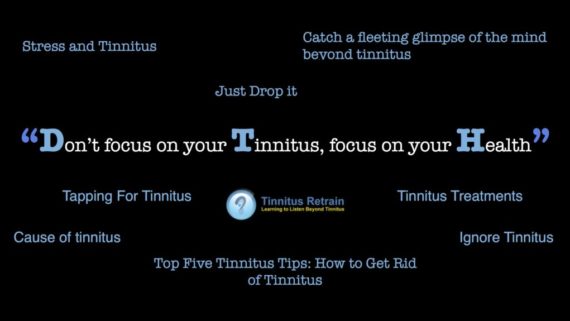Primarily the symptoms of tinnitus are a noise in the ear or ears. The most common form of tinnitus is when only the person who has tinnitus can hear it and this is called subjective tinnitus. There is also another type of tinnitus, where a doctor can hear the noise when a stethoscope is put to the ear of the patient, this is called objective tinnitus and is far more rare than the common subjective tinnitus.
Tinnitus can be annoying and inconvenient for some and a lifetime of misery for others.
Take our tinnitus test and see if any of the following applies to you:
Do you have?
- Ringing
- Buzzing
- Roaring
- Chirping
- Pulsing
- Clicking
(All of the above are commonly used to described tinnitus sounds)
Is the noise in?
- One ear?
- Both ears?
(Tinnitus can present in one ear or both ears)
Is the noise?
- Persistent
- Intermittent
- Erratic
(Tinnitus can be constant, come and go or have a pattern or a trigger)
- Is the noise a pulsing? Kind of like a heart pulse?
(If so you might have pulsatile tinnitus)
- Has the tinnitus been there for less than six months?
(If less than six months it could go away)
- Has the tinnitus been there for over six months?
(Over six months it’s more likely that tinnitus is there for good)
- Are you hard of hearing?
(Hearing loss is associated with tinnitus)
- Have you been around a constant loud noise such as mechanical equipment or music?
(Loud persistent noise through occupation or music can be a precursor to tinnitus)
- Have you been exposed to a sudden loud noise?
(A very loud and sudden noise can cause damage to the tiny hairs inside your ear, causing tinnitus)
- Has the noise in your ears started since taking any new medications?
(Some well known medications can cause tinnitus)
As you can see the symptoms of tinnitus can be varied.
Regardless of how you got tinnitus or what kind of pitch, tone, volume or type the tinnitus presents it’s self as it can really get under our skin.
It is important and helpful to talk to someone about your tinnitus before you allow it to take hold of your emotional well-being.
If your tinnitus is older than 6 months it’s very possible you’re suffering from long-term tinnitus. And it could get worse with time and age, if however you’re your tinnitus is relatively new (under 4-6 months) there is a chance that it is temporary, perhaps caused by loud music, infection or a new medication.
It’s recommended you seek professional medical advice to find out if you have any other health issues related to the noise in your ears.
If your symptoms of tinnitus are accompanied by any dizziness, light-headedness, headaches, ear drainage or nosebleeds please consult a medical professional as soon as possible.
DO NOT LISTEN to anyone who tells you that you have to suffer from tinnitus for the rest of your life, because this simply is not true. There are powerful ways to eradicate your troubling tinnitus.
One important thing to remember about your tinnitus is that the sooner you work on reversing the negative effects of tinnitus on your emotional health the quicker and easier you’ll be able to bypass the condition and change your response to the stimuli. Forging new and strong neural pathways towards elimination and a tinnitus free future.
Visit tinnitus retrain for some invaluable tinnitus eradication techniques and methods.










